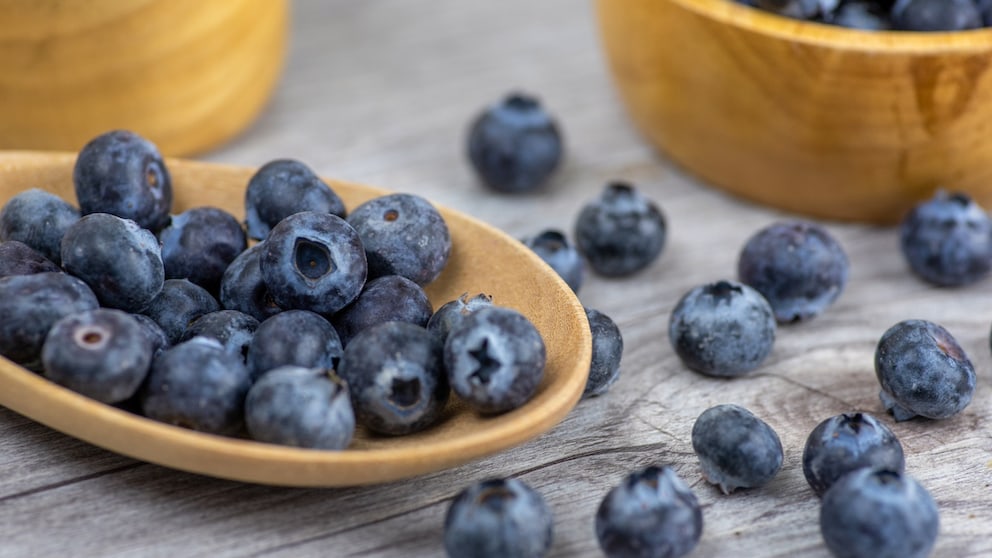March 28, 2025, 8:02 pm | Read time: 4 minutes
Blueberries are not only versatile but also full of healthy nutrients. They contain plenty of vitamins C, E, and K as well as iron and calcium. The berries get their intense color from anthocyanins. This is a secondary plant substance that has antioxidant properties. To preserve the nutrients and fresh taste for a long time, blueberries should be stored correctly.
Blueberries are known by many different names in many regions. Depending on the geographical location and regional dialect, it is known as blueberry, huckleberry, bilberry, wild berry, or forest berry. Names such as bickberry, bog bilberry, or hayberry are also common, but ‘cranberry’ refers to a different berry altogether in the United States. Despite this variety of names, one thing remains the same everywhere: the correct handling of the delicate berries. Only if you take when storing blueberries to do so correctly can you ensure that they stay fresh for as long as possible and retain their aromatic flavor.
Overview
Storing Blueberries Correctly
Blueberries are particularly sensitive. It is therefore advisable to eat them as soon as possible after buying or picking them. However, if you have more berries available than you want to eat straight away, it is important to store them properly.
The best place for storing blueberries is in the fridge, according to the consumer advice center. The low temperatures prevent the fruit from spoiling or going moldy quickly. Refrigeration preserves the freshness and significantly extends the shelf life of the delicate berries — usually by a few days. Care should be taken to keep the berries as dry and loosely distributed as possible so that they are not bruised and excessive moisture is avoided.
How Long Can Blueberries Keep in the Fridge?
Many types of berries can only be stored at room temperature or in the fridge for a few days. Blueberries are different! They can remain edible in the fridge for up to three weeks. The prerequisite for this is that they are stored correctly. That means cool and dry.
Should You Wash Blueberries After Buying Them?
You should only wash blueberries if you want to eat them straight away. If you’re not planning to eat the blueberries immediately but intend to store them in the refrigerator, it’s best to avoid washing them. The reason for this is the natural protective layer that surrounds each blueberry. The fine, waxy layer protects the fruit from external influences and helps to preserve its freshness for longer. If it is washed off by water, the berries lose this natural protection and become more susceptible to bruising and premature spoilage.
The moisture provides an ideal climate for mold to form. If blueberries are stored damp in a closed container or directly in the fridge, this residual moisture can quickly become a breeding ground for mold and significantly shorten the shelf life of the berries.
To avoid this, it is advisable to spread the berries out carefully — for example, on a clean paper towel or cloth — and gently dab off any moisture. Only then should the blueberries be placed loosely in the fridge, preferably in a shallow dish and without a cover.

Healthy Fruit Store Kiwis Correctly to Keep Them Edible for Longer

Store Correctly These Fruits and Vegetables Should Not Be Placed in the Vegetable Drawer

For perfect enjoyment Harvesting and storing blackberries properly
Freezing Blueberries
If you want to preserve blueberries for longer, you can easily freeze them — an ideal way to enjoy the fresh fruit out of season. To prevent the berries from sticking together during freezing, they should first be carefully sorted, stalks removed, or damaged specimens removed and not washed to preserve the natural protective layer.
It’s best to arrange the blueberries in a single layer on a baking sheet or tray before placing them in the freezer for one to two hours. As soon as the berries are frozen through, you can transfer them to an airtight freezer bag or storage tin. This way, they can be removed in portions and will retain their shape upon thawing. Frozen blueberries are ideal for smoothies, desserts, yogurt, or baking — and will keep for up to a year.

